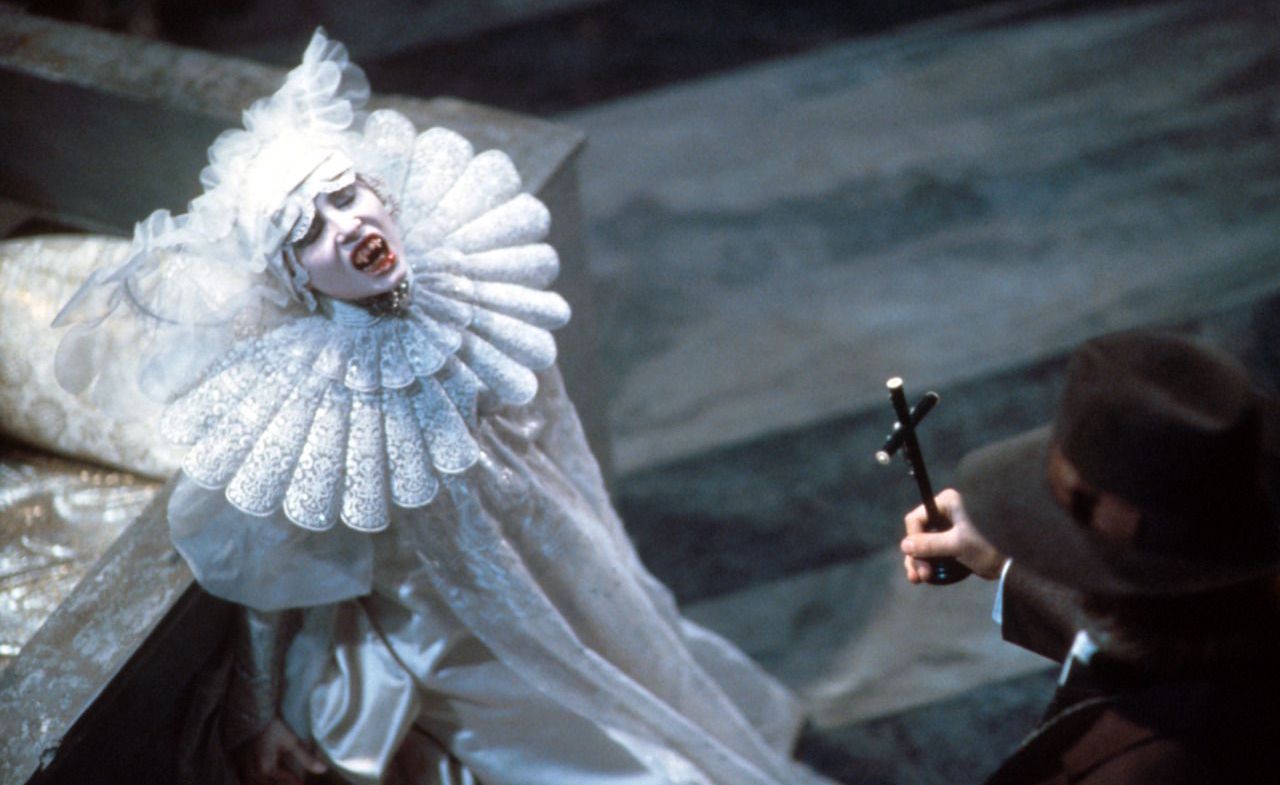Dracula has risen from his grave again. The news is hardly surprising since the most adapted character in cinema getting yet another movie is as inevitable as death and neck bites. However, the new Dracula project developing at Universal Pictures is of special intrigue given who is making it and why.
The Hollywood Reporter broke the news that Chloé Zhao, fresh off receiving a Golden Globe nomination for Best Director, has signed on to adapt Bram Stoker’s classic 1897 novel… as a sci-fi Western set in the future.
“I’ve always been fascinated by vampires and the concept of the Other they embody,” Zhao said in a statement, hinting at her approach. This lined up with Universal Pictures president Peter Cramer, whose own statement read, “Chloé’s singular lens shines a light on stories of the overlooked and misunderstood. We are thrilled to be working with her as she imagines one of the most iconic outsider characters ever created.”
The union of Zhao and Universal is interesting for both parties. After helming Nomadland, an intimate character study about real-life American Nomads and an an Oscar frontrunner, Zhao’s horizons appear wide, particularly since her next film is a Marvel Studios sure thing: Eternals. Additionally, Universal’s brand is associated with the undead count more than any other media company, with the original 1931 Dracula starring Bela Lugosi turning 90 years old this month. And by pursuing this project with Zhao, the studio has seemingly sidelined Blumhouse and Karyn Kusama’s own developing Dracula reimagining.
However, it’s Zhao and the studio’s emphasis on the “Other” status of the vampire that most intrigues in this “sci-fi, futuristic Western” approach. On paper that could be written off as a lot of buzzwords strung together to make a tired property seem new—especially given Dracula’s spotty track record whenever someone attempts to adapt the character to “modern times” (we see you, Dracula 2000). And yet, the pitch could exhume some of the most overlooked elements from Stoker’s 1897 book.
For among its many themes, the literary Dracula is coated with a visible layer of xenophobia and suspicion of outsiders walking among civilized British society.
Indeed, some of the better previous adaptations of Dracula were right to focus on the tale’s obsession with sexual degradation, as the vampire represented a corrupting force in Victorian culture, as well as some of its more forward thinking themes about the role of the “New Woman” embodied by Mina Harker, and the use of science and technology co-existing with religion to defeat old world horrors and superstitions. But most movies tend to skirt or ignore that Stoker is also expressing dread about Eastern influences attempting to corrupt Western virtue. After all, the name Lucy Westenra is derived from “light of the west.” As Dracula’s primary victim, Lucy is depicted on the page as a virtuous English woman who is corrupted into something debased by an Eastern influence. Because in late 19th century England, Transylvania seemed very eastern to an Irishman living in London.
While there are other heroic foreign characters in the book, such as the American-born Quincy P. Morris, they are also part of a fellowship of enlightened Westerners trying to protect light (Lucy) from dark. And when that fails, they will have their justice by driving Dracula and his influence out of Britain.
To the modern eye, this struggle for cultural supremacy among white Europeans may appear muted, but perhaps that is why Zhao is setting her Dracula in the future. With a high concept like a futuristic Western, Zhao theoretically would be able to update these more prosaic themes intended for the Victorian mind and modernize them for our 21st century eye. And yet, by setting it in the “future,” she and Universal could also deal with these themes in a still allegorical (read: abstract) context, which may have more commercial appeal than a confrontational setting in the immediate post-2010s reality we’re all living in.
This is of course all speculation, but it does make the mind wonder at the possibilities, including how perhaps focusing on Dracula’s Otherness from the vampire’s perspective, he can be turned into a different sort of antihero. In 1992, Francis Ford Coppola successfully made Dracula a romantic bad boy to a generation of moviegoers. Perhaps Zhao can do the same for those being pushed to the outskirts of society today?
